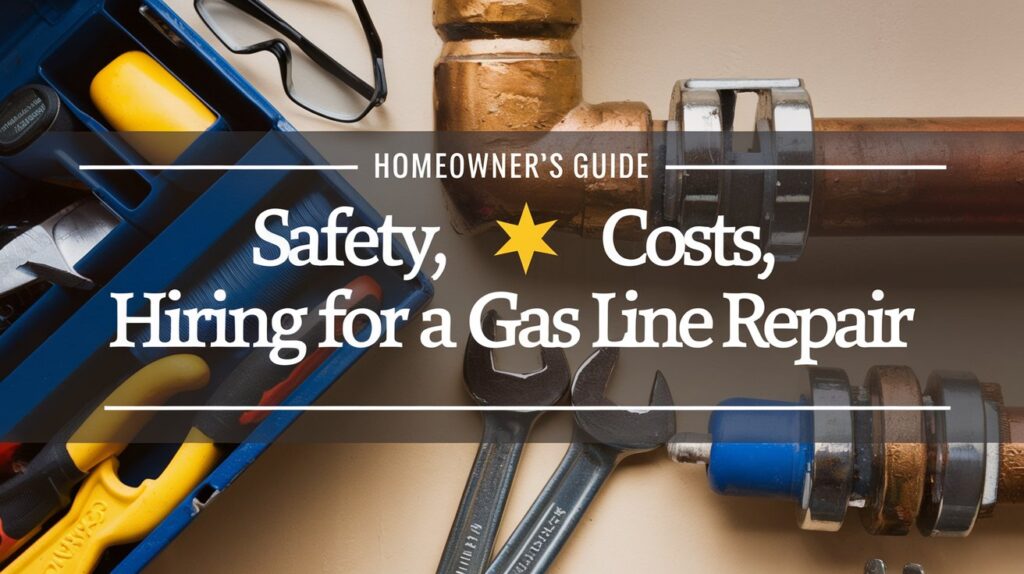Plumbers Tweed Heads Gas Line Repair in 2025

Gas Line Repair: A Homeowner’s Guide to Safety, Costs, and Hiring the Right Gas Plumber
Gas line issues are emergencies that demand immediate attention. Whether you smell gas, notice a hissing sound, or suspect a leak, knowing how to respond—and what to expect when calling a gas plumber—is critical for safety and peace of mind. This guide answers all your questions and curiosities about gas line repair, providing a step-by-step roadmap for homeowners.
Key Questions Homeowners Ask About Gas Line Repair
1. How Do I Know If I Have a Gas Leak?
- Signs to Watch For:
- A strong “rotten egg” smell (gas companies add odorant for detection).
- Hissing or whistling sounds near gas lines or appliances.
- Dead plants or discolored vegetation near gas lines.
- Higher-than-usual gas bills.
- Immediate Action:
- Evacuate the area.
- Do not use electrical switches, lighters, or phones (sparks can ignite gas).
- Shut off the gas supply at the meter if safe to do so.
- Call a licensed gas plumber or your gas provider’s emergency line.
2. Can I Fix a Gas Line Myself?
- No. Gas line repairs require specialized training, tools, and certifications.
- Risks of DIY Repairs:
- Gas leaks can lead to explosions, fires, or carbon monoxide poisoning.
- Improper repairs may void insurance or violate local regulations.
- Always hire a licensed gas plumber.
3. How Do I Choose a Qualified Gas Plumber?
- Check Credentials:
- Ensure they hold a gas-fitting license (required by law in Australia).
- Verify public liability insurance (at least $10 million coverage).
- Ask Questions:
- “How many years of experience do you have with gas line repairs?”
- “Can you provide references from past clients?”
- “Do you offer emergency services?”
- Red Flags:
- No license number displayed on their website or vehicle.
- Unwillingness to provide a written quote.
4. What Does the Repair Process Involve?
- Step 1: Inspection
- The plumber will use gas detectors or pressure tests to locate the leak.
- Step 2: Repair or Replacement
- Minor leaks may be fixed by tightening fittings or replacing seals.
- Corroded or damaged pipes may require section replacement.
- Step 3: Pressure Testing
- The system is tested to ensure no further leaks.
- Step 4: Certification
- A compliance certificate is issued to confirm the repair meets Australian Standards (AS/NZS 5601).
5. How Much Will Gas Line Repair Cost?
- Factors Influencing Cost:
- Location of the leak (underground vs. indoor).
- Extent of damage (minor repair vs. full pipe replacement).
- Time of service (emergency after-hours repairs cost more).
- Average Costs in Australia:
- Minor leak repair: AUD 150 – 400.
- Major pipe replacement: AUD 500 – 2,500+.
- Emergency call-out fee: AUD 100 – 250 (added to repair costs).
- Tip: Ask for a detailed quote upfront, including labor and materials.
6. Is the Repair Covered by Insurance?
- Possibly. Check your home insurance policy for “accidental damage” coverage.
- Document Everything: Take photos of the damage and keep repair invoices.
7. How Long Will the Repair Take?
- Minor repairs: 1–2 hours.
- Major repairs or replacements: 4–8 hours or longer (e.g., underground lines).
8. What Safety Precautions Should I Take Post-Repair?
- Install carbon monoxide detectors near gas appliances.
- Schedule annual gas line inspections.
- Teach household members how to shut off the gas supply.
What to Expect When the Gas Plumber Arrives
- Safety First:
- The plumber will shut off the gas supply before starting work.
- Diagnostics:
- They’ll use specialized tools to pinpoint the leak.
- Transparent Communication:
- A reputable plumber will explain the issue, repair options, and costs.
- Post-Repair Checks:
- The system will be tested, and you’ll receive a compliance certificate.
Preventing Future Gas Line Issues
- Regular Inspections: Have gas lines and appliances checked annually.
- Avoid DIY Modifications: Never alter gas lines yourself (e.g., moving a stove).
- Monitor Appliances: Replace old gas heaters, stoves, or hot water systems.
Conclusion: Safety and Expertise Go Hand in Hand
Gas line repair is not a task for amateurs—it requires the skills of a licensed professional. By understanding the process, costs, and red flags, you can act swiftly and confidently in an emergency. Always prioritize safety, verify credentials, and keep your household informed.
When in doubt, remember: If you smell gas, evacuate and call 000 for help immediately.
Leave a Reply